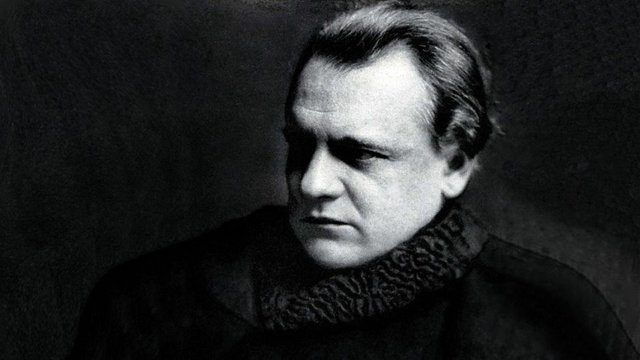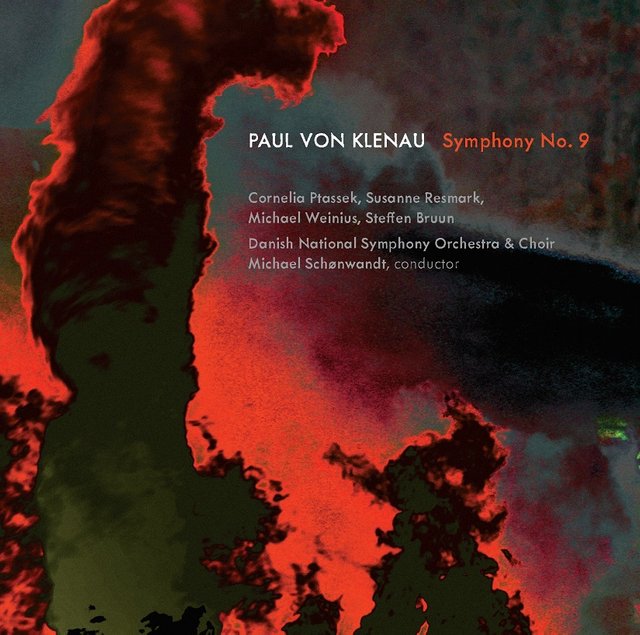[CLASSICAL MUSIC] The Ugly Duckling Of Danish Music 🎻
Paul von Klenau (1883-1946) wrote his Ninth Symphony during the last months of the Second World War, but it was quickly forgotten and found only in 2005 in Vienna by one of the descendants of the composer.

The symphony was written in 1945 by a composer who returned to Denmark in 1940 after a successful career in Germany and Austria. His relationship with the National Socialist regime was very good, so when the war ended, his music was generally abandoned and left at the scrap heap of Danish music history. In 2014 the Ninth Symphony was dusted off, and it finally had its first performance in Copenhagen. How to evaluate von Klenaus music then? Is it "problematic" as so many claim. We know that National Socialist, antisemitic and fascist composers have been capable of producing some pretty darn great and relevant music; not least Wagner, Cassella, Atterberg and Alfvén. And we hardly ever call Stalin praising composers "problematic" to be honest.
The Ninth Symphony consists of eight movements and is written in late-romantic style with elements of quite moderate modernism. Clocking in on just above 80 minutes, it's Denmark's biggest symphony. Written for orchestra, choir and four soloists, it connects to the tradition of Beethoven's Ninth with its effort to be socially and historically transforming. Von Klenau seems to want to accomplish several things with his Ninth.
In the fourth movement, the choir claims - in Latin - that it's "the eternal contradiction of life" that we become tired of peace and long for heroism to the extent that we throw ourselves into another war, only to again long for peace. The war is thus given a universal explanation. Now, the choir sings, everyone must begin to worship life and God. Von Klenau also seems to want to restore the ruins of ancient German culture. Fugues occur in several movements, and in the midsection of the fifth movement's festive march, the sound of Viennese Waltzes can be heard. Musically, the long march is a big and long improvisation, tied to tonality, but most confusing.
Above all, von Klenau seems to want to lead his audience into a brighter future by letting the symphony go from the outbursts in the first movement, to the requiem in the second movement, to finally reach the jubilant praise to God in the eighth movement.

One can wonder how the symphony would have been received if performed in 1945. Seven decades later, it appears as an interesting historical document that gives a quite fragmented impression, rather than an important piece of music. An ugly duckling and odd beast that deserves at least one listen. A controversial and fascinating work of a controversial composer, here in a dedicated interpretation. Schönwand has made a great effort to try and penetrate the music, and the four soloists are magnificent, especially the alto Susanne Resmark (normally Mezzo.) The same cast also recorded it on Dacapo Records, now available on Spotify: https://open.spotify.com/album/3DwcKEJS3XaCEJPk98VyJR

Amazing! You have introduced me to a piece I have never heard before. I will have to listen very intently, and probably multiple times before deciding how I feel about it. I am bout a quarter of the way through and it is really quite impressive.
I'm happy to hear, enjoy!
Your knowledge is inspiring once again my friend :-)
Glad to inspire, friend :)
When I read the headline I thought: Rued Langgaard. A bit of a duckling himself, but not from bad political judgement - just being a weirdo.
But then this is something new to me... Never heard of von Klenau. I will listen tomorrow.
Langgaard was a weirdo indeed. But I do love him.
Yes, me too. Bought the complete symphonies on cd with Thomas Daugaard and the Danish Radio Synphony orchestra, some years ago. Still surprising and... well weird :)
Yeah, the Dausgaard box is an amazing achievement. Unfortunately it doesn't include "Music of the spheres"; probably his most metaphysical, dream-like and mystical work, tangential to the late works of Scriabin.
Ja, Sfærernes musik is fantastic, but I only heard that much later, when I had stopped buying CDs.
Amazing music ... It reminds me of Wagner's style.
Thanks for the post. It's an interesting footnote from 20th century music history, and I had never heard the symphony before. I shared your post on our recently launched facebook page, Steemit's Best Classical Music.
I have also written about classical music:
Very interesting, thank you for sharing this composer!
I finally found time to hear it all because of some involuntary sofa-time.
It's a really interesting piece of music, but also a bit of a wasteland. When I heard the first movement I thought: Carl Nielsen but without the obvious melodies. In the second movement I thought Bramhs... but without the obvious melodies. This goes on except for the very strange and ugly fifh movement and the actually quite pretty sixth. His lack of talent for melodies sounds almost involuntary modern.
His nazi friends must have bored themselves to death with his music, but the fact that they did embrace him made me think of one interesting and also (in my opinion) reassuring fact: That the nazis were very aware of the artistic trends of their own time and succeeded in shaping a lot of it into their own perverted visions. They were progressives and revolutionaries in their own way, and managed to influence the advanced contemporary culture.
Modern days National conservatives are not, and have no influence on art. Trump, the conservative piece de resistance, is simply uncultured and his bad reputation (i guess) is more about his behaviour than his politics (or lack of same).
Thanks again for letting me know about this strange man.
Jeg har lige nævnt dig i et indlæg - og jeg har faktisk også lavet et billede af dig ...
https://steemit.com/music/@katharsisdrill/steemswede-and-classical-music-on-steemit